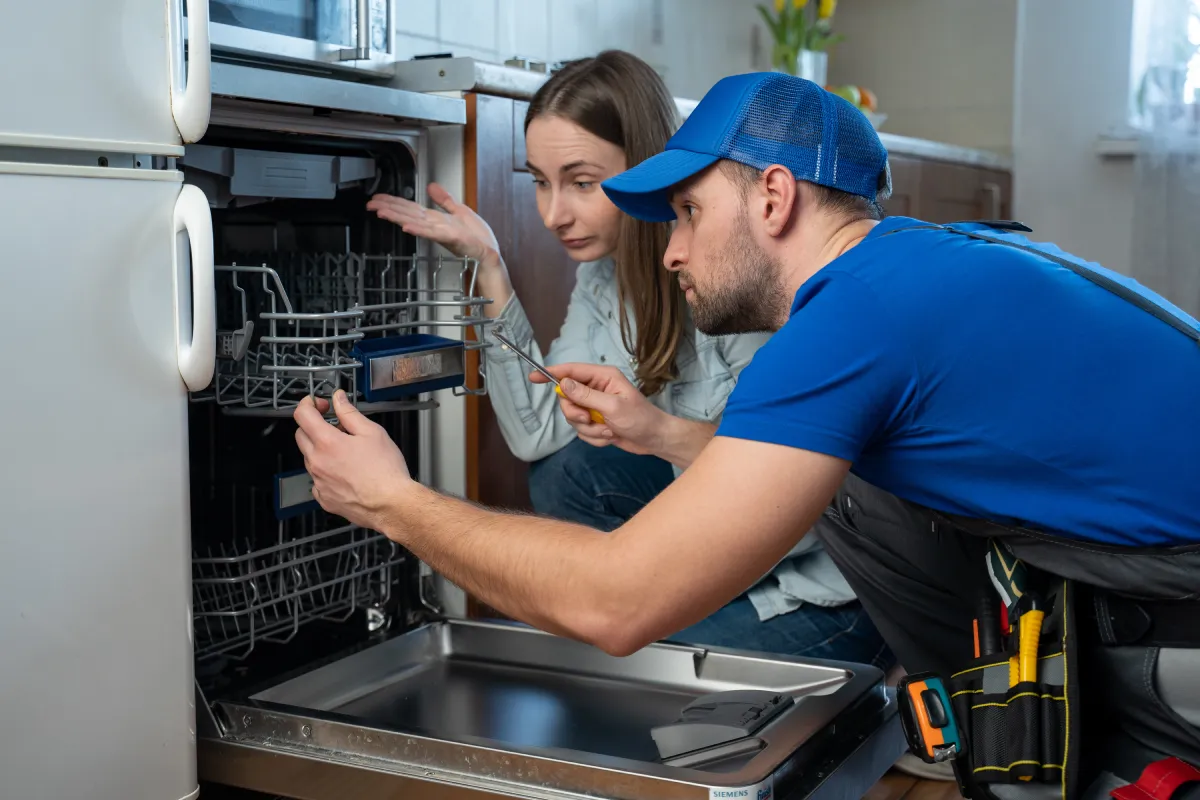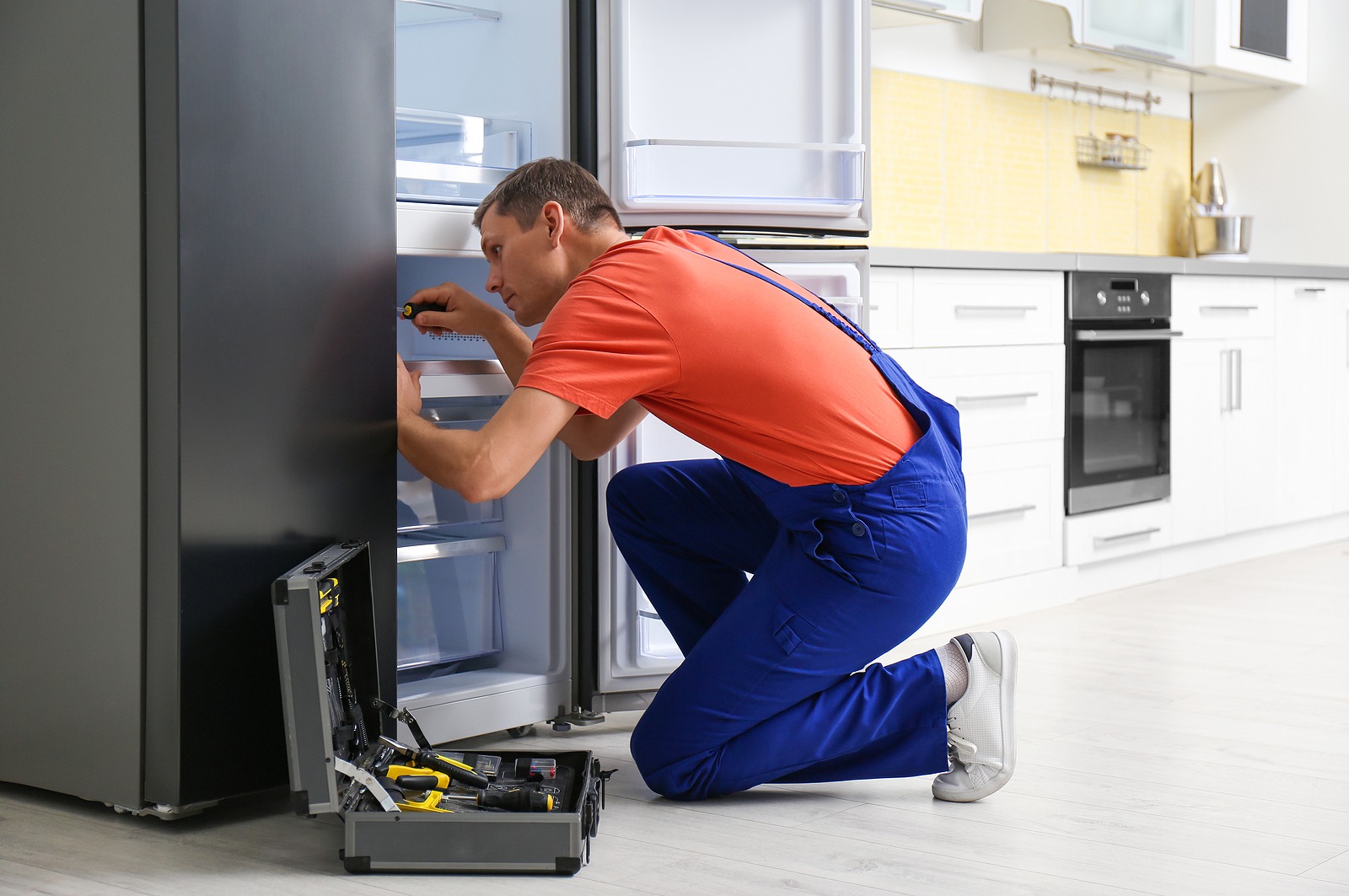7 Red Flags Your Dryer Needs Immediate Service – Washer dryer repair service Dependable Refrigeration
7 Red Flags Your Dryer Needs Immediate Service – Washer dryer repair service Dependable Refrigeration
Blog Article
The Ultimate Overview to Understanding Device Repair Work at Home
When your fridge quits cooling down or your stove refuses to warmth, it can really feel frustrating. Understanding home appliance repair work in your home can save you money and time. You'll discover to acknowledge symptoms, make use of vital devices, and adhere to an organized troubleshooting process. Prior to you begin, there are essential safety and security preventative measures you need to take right into account. What are the most usual issues, and just how can you fix them? Allow's explore the basics.
Typical Home Appliance Problems and Their Signs
When your appliances start acting up, it's important to identify the indicators early. Disregarding them can cause bigger issues and costly repair services. For example, if your refrigerator isn't cooling down properly, you could see warm spots or condensation developing. This might indicate a falling short compressor or a blocked vent.Your dishwasher may show problems via dirty meals or unusual sounds during cycles. If you hear grinding or clanking, it's time to investigate.A cleaning maker that won't rotate or drain can leave you with soaked laundry, recommending a stopped up drain or a malfunctioning pump.Lastly, if your stove's temperature seems off or it takes permanently to pre-heat, you might be dealing with a faulty thermostat. By staying alert to these symptoms, you can resolve problems before they escalate right into major repair work.
Essential Devices for Appliance Fixing
When you're taking on home appliance repairs in your home, having the right devices is vital. Standard hand devices like screwdrivers and pliers will certainly help you take apart and take care of different appliances, while electric screening tools ensure you're functioning securely with electrical wiring. Let's discuss what you need to start on your repair service trip.
Standard Hand Devices
Having the right devices is crucial for reliable device repair service in the house. Begin with a dependable screwdriver set, consisting of both flathead and Phillips kinds, as screws are common in device assembly. Pliers are additionally essential; they aid with gripping, twisting, and cutting cables or small parts. A pair of needle-nose pliers can reach difficult situations easily. You'll require a good flexible wrench for tightening or loosening up nuts and screws. An utility blade is helpful for cutting via product packaging or insulation. Do not forget a sturdy workbench or surface to safely organize your tools and components. With these basic hand devices, you'll be well-prepared to take on most appliance repair work that come your means.
Electrical Screening Gadgets
Together with standard hand tools, electric screening devices play an important role in appliance repair service. These tools assist you detect electrical problems and guarantee devices function safely. A multimeter is vital; it determines voltage, current, and resistance, allowing you to pinpoint troubles quickly. A non-contact voltage tester is one more must-have, letting you discover live wires without making direct get in touch with, improving your security. Secure meters are wonderful for determining existing flow in cables without detaching them, conserving you time and effort. In addition, circuit testers can quickly inspect if electrical outlets are operating correctly. By utilizing these tools, you'll simplify your troubleshooting procedure and boost your repair service abilities, making device upkeep a whole lot less complicated.
Step-by-Step Guide to Diagnosing Appliance Issues
When your home appliance breaks down, it can be irritating, but identifying the concern doesn't need to be frustrating. You'll learn to determine common issues and use effective repairing strategies. Let's stroll with the steps to get your device back in functioning order.
Usual Device Problems

Troubleshooting Strategies Described

Fixing Major Cooking Area Appliances: A Closer Look
Have you ever before asked yourself exactly how to tackle usual problems with your kitchen appliances? Fixing major kitchen home appliances like fridges, stoves, and dishwashing machines can be easier than you assume. Start by identifying the trouble-- whether it's a fridge not cooling down or a stove that won't heat. Usually, a basic reset or examining the power source can fix the issue.For refrigerators, tidy the condenser coils and examine the door seals. If your stove's not home heating, examine the burner and thermostat. Dishwashing machines might simply require a tidy filter or a reset to obtain them back in action. Always disconnect the appliance before diving into repair work to guarantee your safety.Don' t forget appliance electrician to speak with the individual handbook for certain troubleshooting ideas connected to your model. With a bit of patience and the right devices, you can confidently take on device fixings and save money in the process!

Repairing Laundry Appliances: Tips and Techniques
When your laundry devices begin breaking down, it can feel overwhelming, but troubleshooting them doesn't need to be a trouble. Begin by examining the power supply. Validate the device is plugged in and the outlet is working. Next, inspect the door or lid switch; a defective button can stop the equipment from operating.For washers, if it's not rotating, look for unbalanced loads. Rearranging the clothes might resolve the issue. If your dryer isn't home heating, clean the dust filter and examine the air vent for blockages.Listen for uncommon noises; they can indicate a trouble. If your appliance is dripping, examine the hose pipes for fractures or loosened links. File any kind of mistake codes shown on electronic screens, as they can direct you in recognizing the concern. Get in touch with the user guidebook for specific fixing pointers connected to your version.
Safety And Security Precautions to Take During Services
Before you start any kind of home appliance repair work, it's necessary to prioritize safety to prevent crashes or injuries. First, disconnect the appliance or shut off the breaker to ensure no power reaches it while you function. Use insulated tools to minimize the danger of electrical shock. Put on safety goggles and gloves to safeguard on your own from sharp edges or debris (Lg Dryer repair near me Dependable Refrigeration & Appliance Repair Service).Make particular your work area is neat and well-lit, so you can see what you're doing. Keep youngsters and pets away from the area to prevent distractions and prospective threats. If you're handling gas appliances, be extra mindful; look for leakages prior to proceeding.Take your time, and do not rush via repair work. If you feel unpredictable concerning any type of step, it's far better to stop and study than to think. Following these safety measures will certainly help create a much safer atmosphere for your do it yourself appliance repair service task
When to Call an Expert for Aid
How do you understand if it's time to contact a specialist for home appliance repair work? If you've tried basic troubleshooting without success, it's a clear indication. If your home appliance still won't start or reveals unusual sounds after resetting it, do not be reluctant to look for professional help.When you see leakages, smoke, or burning smells, prioritize safety and call a pro right away. These issues can result in even more significant damages or posture threats to your home.Also, if your home appliance is under warranty, calling a professional is frequently the most effective route. They can ensure that fixings won't invalidate your service warranty, conserving you money in the lengthy run.Finally, if you're unclear or uneasy with intricate repair services, it's smart to leave it to the specialists. Keep in mind, dealing with complex issues without the best know-how can cause costly mistakes. Trust a professional when doubtful!
Often Asked Questions
Just How Can I Stop Home Appliance Problems in the Future?
To stop device problems in the future, you need to do routine upkeep, look for wear and tear, clean filters, and prevent overloading. Staying proactive will assist expand their life-span and maintain them running efficiently.
What Are the A Lot Of Usual DIY Home Appliance Repair Mistakes?
You may ignore safety and security preventative measures, avoid repairing steps, or use incorrect devices when trying do it yourself device repair work. Hurrying the procedure or overlooking producer standards can result in more significant problems and pricey mistakes. Stay individual and notified!
Just how Do I Know if a Component Needs Substitute?
You can tell if a component requires replacement by checking for uncommon noises, leaks, or irregular performance. If the device battles to run correctly or shows noticeable damage, it's likely time for a substitute.
Can I Utilize Generic Parts for Appliance Repairs?
Yes, you can make use of generic components for home appliance fixings, yet determine they work - Maytag Washing machine repair Dependable Refrigeration & Appliance Repair Service. Common parts could conserve you money, however they could influence performance or longevity, so consider your alternatives very carefully before making a choice
What Guarantees Cover Appliance Repairs?
The majority of home appliance warranties cover repair services for producing problems, but they frequently exclude damages from abuse. Inspect your warranty terms very carefully, as some might need using certified specialists and initial parts for coverage to stay valid.
Report this page